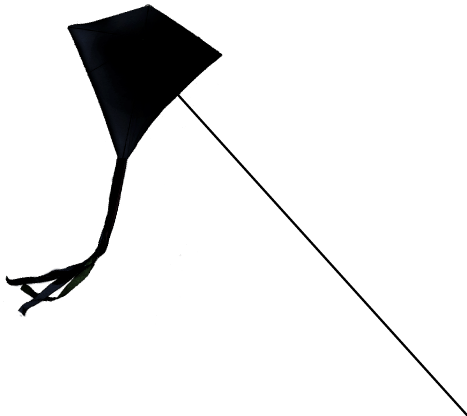Corinthians
You promised yourself you would never call God at work. It was one of the ground rules you set for yourself back when all this started. But desperate times call for desperate measures and it’s not as if you haven’t spent the previous two hours dialing his home number.
You’ve made some mistakes. That much is clear. You knocked back a bottle of Chianti and then texted Him at three o’ clock in the morning before passing out on your couch. You left Him two voicemails the next day, one to apologize for the text and another to apologize for the first voicemail. Your cheeks burn just thinking about it. You know better than anyone how busy God gets around this time of year. Even when the two of you were still together, He’d given you fair warning He could be tricky to get a hold of. By the time you finish dialing, you hope He’s not there to answer.
But God picks up the phone, upbeat as ever. Though there is a note of surprise in His voice when He realizes it’s you.
“I can call back later,” you say. “It’s nothing that can’t wait. I was just thinking of you is all.”
God assures you that now is as good a time as any to talk. He asks you how you have been, how your dissertation is coming together and He tells you how crazy work has been. He sounds genuinely pleased to hear from you. No one listening would guess He’d moved the last of his things out of your apartment three weeks ago. You’re about to suggest meeting for lunch when you hear voices in the background. God tells you something has come up and that maybe, in the future, you should to try to call Him on His cell.
You met God at Boston University two years ago during a theological symposium. He was one of the keynote speakers, along with Leonardo Boff and Catherine Keller. Naturally, the auditorium was packed. You were standing in the back, hugging your attaché case to your chest and would have stayed for the Q&A, but you had a panel on feminist/deconstructionist theology.
Later that evening though, at a little pub a few blocks off campus, you spotted God drinking by Himself. Standing at the lectern, He hadn’t struck you as such an imposing figure. But up close, God dwarfed everything. The tankard in His hand could have been a shot glass. You figured you might not have the chance again and so you introduced yourself.
God smiled at you as you sat down beside Him, but you could tell He was trying to place your face. You saved Him the trouble and let Him know you’d never officially met. An easy, more sincere smile spread across His face when you told Him you were in town for the conference. Of course God offered to buy you a drink. The crows’ feet and laugh lines bunched around his eyes as He told you He was sure He’d gone out of style with the latest crop of theologians.
“I wouldn’t say out of style…” You searched for the words you wanted. “It’s just hard to get out from under you sometimes. You’re like the Beatles, you know?”
God chuckled at that, a basso rumbling that tickled the hairs on the back of your neck. He said He remembered buying the Sergeant Pepper LP like it was yesterday, which made a certain amount of sense when you stopped to think about it. Then He told you how He met Paul McCartney at a bar in Manchester in the seventies. How they had both agreed over rounds that the rumors of their respective deaths had been greatly exaggerated.
It’s not hard to see why so many people love Him. Of course, long before you were born God was considered something of a bad boy, at least within the theological community. You’ve seen William Blake’s painting with His shaggy hair whipping through the air like a rock star’s and His byzantine muscles gleaming with cosmic power. Somewhere down the line, you think around the Italian Renaissance, God started to mellow out a little. These days His hair is white and puffy like Christopher Lloyd’s, but the look works for Him. He’s also put on a little weight over the last few centuries but that just makes Him feel safer somehow. Like a big, tame animal.
God did His best to keep pace with you as you discussed Kierkegaard and Saint Augustine, sipping His Guinness like it was tea. You found out later He can pack away the booze like nobody’s business when He wants to. He’s famous for it, among other things. They say the only one who could ever keep up with Him was Hemingway, and only when God had a good head start. As it was, you were only mildly buzzed when you suggested sharing a cab back to His hotel. God asked you if you were sure and you told Him it wasn’t as big a deal as all that. No pressure, no expectations, you just didn’t feel like calling it a night quite yet. You were a little surprised to discover He was staying at the Sheraton.
God is an exceptionally skillful and considerate lover. Every time. He says it’s a byproduct of omnipotence but you secretly suspect it comes from years and years of practice. He knows what you want before you know it yourself. He’s pleasingly hot to the touch, as though a thousand suns burned deep inside Him. But it’s the level of control He brings to the bedroom that really demolishes all your conceptions of what sex could be. A single whorl of His fingertip does the work of an entire finger, an entire hand. Just the brush of His lips against your skin swaddles you in a blanket of dopamine and seratonin. Never in your life have you encountered such gentled strength.
He takes you on vacation to Saint Lucia during winter recess, Rio Di Janeiro for Carnival and Atlantic City for your birthday, where you play black jack and shoot craps for nearly an hour while God watches. You offer Him the dice once, but He just smiles and shakes His head.
Most of the time you spend with God though, you spend at your own apartment on the lower East Side. He calls ahead to tell you He’s coming and usually picks up dinner on the way. He says He needs the time to unwind and the truth is you don’t mind so much. You often fall asleep on His chest while He thumbs through a fresh hardcover. God, you’re not surprised to discover, is a voracious reader. Naomi Klein one night, Salman Rushdie the next. You even saw Him reading Richard Dawkins once. He claimed he made Him think.
But all that was almost a year ago. Now God insists you’ve grown apart, that most relationships end this way, and that you deserve better. What He means is He deserves better. You wonder if it’s another woman. You know God has other women. Dozens at least, on any given week. It’s something you silently accepted before you even kissed for the first time. It was an unspoken compromise, a small sacrifice in the grand scheme of things, but made in earnest. The truth is you almost hope God has fallen in love with someone else. The only other explanation is that He’s just plain tired of you.
Making a clean break is difficult for God. He says He has a hard time with goodbyes, which is probably why He packed His things while you were at work, teaching a class on Jacques Derrida. You have never taken breakups well. You locked yourself in your apartment and cried for a week after your last boyfriend told you he thought things were getting too serious. You were twenty-three. But this is something new. What you are feeling now are unprecedented heights of misery and desperation. You miss Him so much it makes you giddy. It feels like the best and truest thing you could possibly do.
The skin on your face starts breaking out the way it did back when you suffered from what you thought was chronic insomnia. Bottles of White Zinfandel start disappearing from your refrigerator and then reappearing empty and in unlikely places around your apartment. You find yourself thinking about the dangerous glint God has in His eye in some of his more medieval portraits. You’ve never seen that glint, not in real life. You begin to wish you had. Domination, submission, and prostration…these are concepts that make an instinctual sort of sense to you. You wonder if God would have tied you up or cuffed you to the bedpost if you’d asked Him.
You didn’t plan on finding God at McSorley’s. But it wouldn’t have made any difference. You would have gone just the same. God is with His friends, telling stories and gesturing expansively with His hands. You recognize a few of their faces. The Imam from Brooklyn and bestselling author of Modern Islam in America Kareem Hossain sips ginger ale from a straw. To his left are the Archangels Michael and Gabriel, in town for the Saint Patrick Cathedral’s Rite of Election. Benjamin Rosenstein, an owlish rabbinical student at Yeshivat Chovevei Torah, sits off to the side, rapt with attention. You met Rosenstein at a Columbia lecture series and he had insisted on introductions. Much to your irritation, God and Rosenstein had hit it off. You remember God, reading glasses dipped low on the bridge of His nose, flipping through the pages of an article Rosenstein had written for the Tikkun Olam newsletter, writing notes in the margins. It looks as though Rosenstein is sitting by himself now, so you give him a small wave with your fingers. He nods in your direction, but does not gesture for you to join him. You grow reckless after two stouts though and turn the chair next to him around, spreading your legs and wrapping your arms around the backboard.
“What’s happening, Benjamin? Just hanging with the Big Guy?” Your voice sounds clumsy and bitter even in your own ears.
“We were talking about the Council of Nicaea,” Rosenstein tells you. “Trying to decide if it counts as the first real instance of postmodern textuality. Death of the author, you know?”
You say nothing as you sip your wine.
“I think it’s fascinating,” Benjamin continues. “Virgin Birth? Transubstantiation? With Christianity, it all comes down to the editorial process.”
He hasn’t said or done anything wrong, of course, but even so you want to reach out and break the little man’s glasses. Slap the yarmulke off his head and watch him scramble on the floor to retrieve it. You’re not quite sure what’s gotten into you. Your boyfriend’s son is Jewish, you remind yourself, then remember to remind yourself He’s not your boyfriend any more.
Sensing trouble, God appears between the two of you and gives you a warm squeeze on the shoulder. He says He’s glad you’re here.
“Generally speaking?”
He tells you no without missing a beat. Here, tonight, with Him. You wish He would make some small quip, a Casa Blanca reference, or better yet some kind of inside joke only you and He would understand. Something, anything to let you know He’s been thinking of you a fraction as much as you’ve been thinking of Him.
“We were talking about the Council of Nicaea,” Rosenstein repeats.
“It’s funny you should mention that,” you say. “Because it just so happens I’ve been thinking of the Pauline Epistles.”
“The what?” he asks.
“Out of your league, Benjamin. You’d know,” you say to God. “Tell him, why don’t you?”
There is of course a great deal of territory to cover with the Epistles, God explains defensively. Too much to get into all in one night. He’s feigning ignorance. He’s always known exactly what’s on your mind.
“We can start small. I was thinking of the early Epistles. Not too early though. I like to sleep in. So not Romans. More like…First Corinthians.” God implores you with His eyes to stop. You were hoping for anger, maybe even some legitimately biblical wrath. But all you see on His face is that sad, weight-of-the-world look you’ve come to hate.
“Love is patient,” you start. “Love is kind. It does not envy, it does not boast, it is not proud-”
“This sounds familiar,” Rosenstein interjects.
“Shove it,” you tell him. “I’m not finished.” God swallows a double Sambuca as if He were washing down an aspirin.
“Love does not delight in evil but rejoices with the truth. It always protects, always trusts, always hopes, always perseveres. Love never fails. But where there are prophecies, they will cease!” You rise to your feet for emphasis, nearly toppling your empty glass in the process.
“I don’t know about anyone else,” Imam Hossain says quietly. “But your Saint Paul has always frightened me a little.”
“Where there are tongues, they will be stilled!” You jab your finger in the air now as you stroll around the table. “Where there is knowledge, it will pass away! For we know in part and we prophecy in part, but when perfection comes, well…” Your voice cracks and you let it trail off for a moment, holding up your hands as you a take a step backwards. “The imperfect disappears. It just fucking…disappears. Like it was never there in the first place, right? Like it didn’t even matter.”
“I think there’s also something in there about putting away childish things,” you hear a cavalier voice say over your shoulder. The Archangel Michael’s lips are remarkably close to your ear and his thick, honey-colored hair almost touches the base of your neck. He’s shorter than he looks sitting down you realize. Five seven, maybe five eight at the most. You hadn’t noticed you were about to back into him. All eyes are on you, all except the ones you want. Those eyes are cast to the floor either in guilt or in pity. You can’t tell which.
“Yeah,” you admit. “That would be Corinthians 13:11.”
“Chapter and verse,” he raises one eyebrow.
“I would have gotten there eventually. Probably.”
Without looking up, God asks if you and Michael have met. Before you realize what’s happening, the Archangel has steered you away from God, the table, and Rosenstein. You hear the conversation picking up again as you walk with him. Michael asks if you smoke and you ask, mystified, if he does.
“No,” he says regretfully. “Not any more. Gabriel still does. He’s more important to Muslims though, and they don’t seem to mind as much. But the Catholics, they’re telling me it’s bad for my image.”
“Hey, yeah,” you say. “Aren’t you supposed to be a saint or something? I mean, on top of being an Archangel?”
“Sort of,” he says. Then he adds, “It depends on who you ask.”
Michael is a sinewy creature, all piano wire and cobblestone beneath his flawless pink skin. Mere inches from your face, his unblemished beauty is more than a little unsettling. You would swear he was cut from glass. He could be a model. He could front a band. He probably looks a little like God looked, back when He kept in better shape. But you’re nostalgic for His fleshy tree trunk of a body, His long soft beard and His wide silver irises gazing down on you. Michael’s eyes are fierce black dots in pure white vitreous, almost cartoon-like. When he takes your waist in both hands and asks if you wouldn’t mind turning over onto your belly, you happily accede to his request.
Later, when the clock radio clicks four in the morning and you realize Archangels probably don’t sleep, you attempt small talk. There was a time, Michael tells you, when he officially commanded God’s army. It had been an entirely ceremonial post of course. Mostly just showing up at the right place on the right day. No real responsibilities or decision making of any kind.
“You know according to Hossain back at the bar, me and Gabe aren’t even supposed to have free will?” he complains, his head cradled lazily in his hands. “Isn’t that a bitch?”
“Do you ever let that hold you back?” you ask, pulling a sheet over your body as you roll over to face him. You feel oddly curious on this point. “I mean, does it ever come up? You want to zig when He says to zag?”
“You have anything to eat? “Michael cracks his neck as he turns to face you. “I feel like a pancakes. Do you feel like pancakes?”
You give Michael directions to the Sullivan’s Diner and are only a little startled when he unfurls a pair of expansive, snowy wings. He gives you what could be a wink, or maybe just a nod, before exiting discreetly through your window. For a moment it looks as though he’s fallen to his death, but he swoops up into the air and melts away into the cityscape.
“Eloi, Eloi, lama sabachthan,” you mutter to no one in particular.
God avoids you now more than ever. He used to email you funny news stories and cartoons every so often but now He doesn’t even do that. He knows. Of course God knows. And He can’t appreciate it very much. For all His philandering, He never did anything that would have come back to you. You curse Michael’s big mouth. No free will, your ass. You curse yourself too, feeling stupid and ashamed. Now you can’t even call Him. You wouldn’t know what to say if He answered.
You stumble like a zombie through your doctoral defense, but no one on your committee seems to notice. Friends and colleagues congratulate you and you accept their congratulations with numb, measured irony. Your parents call to tell you they’re proud of you and you dance around the subject of God. Of course they had loved Him even before they met Him. They’d both been fans since before they were your age. You haven’t had the heart to tell them you and God are through, but they know things haven’t been right between the two of you for a while now. You know they’ll be disappointed when you finally break the news. You also know they will tell you that maybe it’s for the best, that maybe you and God are better off as friends, and maybe you yourself are better off with someone closer to your own age. And you know you’ll tell yourself that they are right. It’s just that you’re in no mood to hear any of that.
You toy with idea of inviting God to your graduation ceremony. Just to show Him there aren’t any hard feelings. No pressure. No expectations. Just a friendly hug, maybe a kiss on the cheek, and that’s all. You don’t think He’d tell you no if you asked Him. God has never been one to bandy around the n-word. You’ve come to understand that’s part of His strategy. He never closes a door unless He absolutely has to. But He won’t make any promises either. And when the day comes, you will spend the entire time scanning the audience for Him. If you had any kind of discipline or self-control you would understand He wasn’t coming. He isn’t hard to pick out of a crowd and He would never have told for sure that He would be there. But none of that will matter. You’ll tell yourself you must have made a mistake, that your senses must be deceiving you because if God loved you at all, He would be there for you now. And then you’ll start thinking that God hates you. That He’s doing this on purpose because He wants you to suffer. And no one should ever have to think that sort of thing about their ex. It demolishes one’s sense of self-worth like nothing else can. And…do you say it? Dare you say it? You do. You will. God, at long last, is just not that into you.
You meet Rosenstein again two years later, after you’ve left New York City for good and taken a tenure-track position at small liberal arts college in the Midwest. He’s shaved his beard and switched to narrow, more angular metallic frames. He also moves with a kind of ease you’re not sure he had had before.
“It’s been too long…” he says. You see in his eyes that he’s searching for your name. You save him the trouble and remind him how he knows you. You expect his eyes to go wide as he remembers, but his response is surprisingly nonchalant.
“I know,” he says. “I was just blanking on your name is all.”
You ask him how things have been and discover Rosenstein has not only left the city, but the rabbinical profession altogether. He’s interviewing for a position in the department that shares a floor with your own.
“Academia asks not for your faith,” Rosenstein pronounces grandly. “Only your credentials. Don’t get me wrong. He’s still a big part of my life. Always will be. But at a somewhat more comfortable distance. You know what I mean?”
It strikes you then, though it had not before, that Rosenstein is gay. Not just gay. In love, and you know all too well who with. The stammering. The averted eyes. The pigeon-toed piety whenever He was in the room. You don’t think the two of them were ever together but you’ve been wrong about that sort of thing before. God’s love, now that you think of it, couldn’t possibly be so small as to confine itself to one gender. And you know firsthand he has a taste for scholars.
Rosenstein bows slightly, or maybe just nods, and you let him pass. There is a moment, fleeting but tender, when you allow yourself to think about God and the way things were. Given the chance, you’re forced to admit you would do it again. The wounds never fully heal. That’s how you know it was real. But there is a world of difference between learning from a mistake and not. Between living the rest of your life and not. Between spending the finite number of days He gave you fixating over the finite number of days He gave you and not. You’re on the right side of that divide and it feels good. Like losing track of your student loans and realizing you’ve almost paid them off.
You have an hour before office hours and so you take a stroll around the quad. A few of your students recognize you and wave. You smile politely in their direction. They aren’t so very much younger than you, but there’s something in their complexions, their voices, even the way they dress that feels wrong. Not wrong. Incorrect. Incomplete. Larval worldviews in an indifferent world. Or maybe that’s your damage talking.
Sam Schreiber's work has previously appeared in Lambeth Quarterly, The Chicago Music Project, and urbancode magazine. He currently teaches creative writing at New York University, where he is completing his MFA degree.







